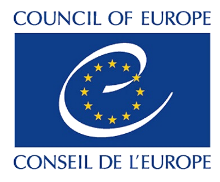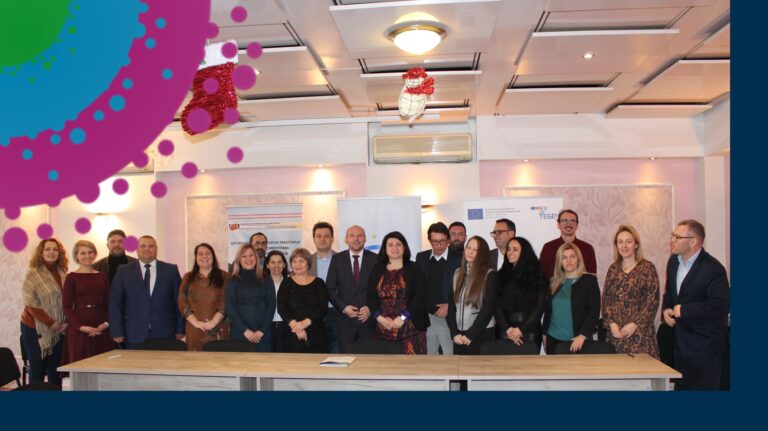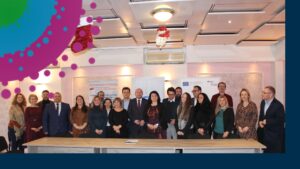Current status
Submitted
Contributor(s)
First contributor: ALDA – European Association for Local Democracy
Summary
CSOs for Making Local Democracy Work was designed to strengthen the impact of the civil society organizations in public policies on local level in North Macedonia. The activities contributed to the establishment of cooperation between the Civil Society Organizations (CSOs) and Local Authorities (LAs) as well as to the creation of enabling financial environment for small and grass-root organizations. The implementation of the project activities had strengthened the role of civil society as key factor in the EU accession process. This project proposed a combination of interrelated activities designed to fulfil the project objectives: capacity building; research and advocacy activities, sub-granting, networking, and awareness raising. To create sustainable impact, the project involved different group of stakeholders: 1) CSOs and grass-root organizations; 2) LA with balanced geographical outreach and balance of population and 3) Centres for regional development as one of the stakeholders for territorial development.
Administrative level
National (North Macedonia)
Year of implementation
2017 – 2020
Policy area(s)
- Public Finances
- Enabling environment for CSOs
Further details
/
Sorry, no records were found. Please adjust your search criteria and try again.
Sorry, unable to load the Maps API.
European Movement from North Macedonia – EM
Civil society organisation
Contact info
/
Tipology of involvement in the initiative
- Initiating (i.e., advocating for and starting the process)
- Organising
- Funding
- Participating with a direct involvement
Association of Finance Officers of the Local Governments – AFO
Civil society organisation
Contact info
/
Tipology of involvement in the initiative
- Initiating (i.e., advocating for and starting the process)
- Organising
- Funding
- Participating with a direct involvement
Level of Participation
- Dialogue
- Partnership
Discover more
By level of participation we refer to the type of involvement in the decision-making process. The levels are identified by the intensity of participation: going from “information” to “consultation” to ” dialogue” to “partnership”. Do you want to learn more – click here
Developed practice(s)
Aiming to strengthen the impact of civil society organizations (CSOs) on public policy making at the local level, the project covered a range of activities to support cooperation between CSOs and local authorities, but also to contribute to the creation of appropriate financial opportunities for small organizations. This would reinforce the role of civil society as a key factor in the EU integration process.
Step(s) of the political decision-making process at which the practice was implemented
- Inputs/Incentive ideas for policy
Discover more
There are six different steps of the political decision-making process: agenda setting, drafting of policy, decision-making, implementation of policy, monitoring and reformulation of policy. Each step offer opportunities for CSOs and public authorities to interact. Do you want to learn more – click here
How the initiative was implemented
Situation
The central activity to the project was the awarding of grants to 12 CSOs in the Republic of North Macedonia to support the local democracy and foster the cooperation between CSOs and local self-governments.
Activities performed
Significant part of the activities was focused on capacity building through the implementation of thematic trainings for CSOs and local authorities, considering the equal regional distribution. In the framework of the project several events were organised, such as an international conference, a national forum, a launching, and a final conference, all with possibilities of networking and discussions of different stakeholders to provide opportunities for sustainable change to existing practices. The various activities aimed at raising awareness of local democracy among the citizens and the right to citizen participation in policymaking on local level.
Tools and mechanisms applied
One of the main components to support the local organizations was the sub granting scheme. 12 small CSOs created their own activities and proposals to enhance their co-operation with local authorities.
Goals of the civil participation initiative
At community level
Reinforce cooperation with citizens and citizens organisations
From Civil society organisation’s perspective
To enhance their co-operation with local authorities
From Public Authority’s Perspective
/
Results expected prior to the implementation
- Empower civil society to be credible, accountable, and independent stakeholder in the EU accession processes
- Encourage networking and exchange of best practices between civil society organizations and local authorities
- Strengthen the impact of the civil society organizations in public policies on the local level in North Macedonia
Immediate results achieved after implementation
- Participatory democracy – the basis for the development of civil society
- Transparency and accountability – the foundation for developing partnerships
- Collaboration between different stakeholders – the basis for sustainable local development
Long-term impact
The biggest benefit of the project is the opportunity to create new contacts and build partnerships. This project has provided numerous activities for exchange of experiences and networking of different stakeholders, CSOs, municipalities, institutions, local communities, centres for regional development, development agencies etc. Partnership is one of the key elements mentioned in almost all the activities and meetings and from there is the idea of creating a local democracy network. The result of this project will be the creation of an informal network of CSOs and other stakeholders who are committed to fostering local democracy. This informal network will serve as a platform for information exchange, promoting good practices and a shared commitment to the development of civil society and local democracy.
Practice lessons learnt (obstacles and solutions)
| Agency (i.e., political conditions/power structures) | Obstacles | Local elections |
| Solutions | Working with technical staff | |
| Legislative | Obstacles | / |
| Solutions | / | |
| Administrative | Obstacles | EU implementation rules |
| Solutions | / | |
| Socio-cultural | Obstacles | Diverse socio-cultural structure of the country |
| Solutions | Work in every region | |
| Economic | Obstacles | / |
| Solutions | / | |
| Human capital | Obstacles | Lack of HR |
| Solutions | Volunteers | |
| Other | Obstacles | / |
| Solutions | / |
Further information
/
Self-assessment
The self-assessment presents the opinion of the contributor about on what extent the following principles for Civil Participation have been reflected in the implementation of the initiative/practice/case-study, ranging from 1 (min) to 4 (max) (N/A: not applicable, do not know)
| Openness | 3 |
| Explanation | / |
| Trust | 3 |
| Explanation | / |
| Independence | 3 |
| Explanation | / |
| Participation | 3 |
| Explanation | / |
| Transparency | 3 |
| Explanation | / |
| Accessibility | 3 |
| Explanation | / |
| Non-discrimination | 3 |
| Explanation | / |
| Inclusiveness | 4 |
| Explanation | / |
| Accountability | 3 |
| Explanation | / |
Thank you for wanting to share your experience on the BePART platform!
Learn more about the submission process, or just fill the form below.



